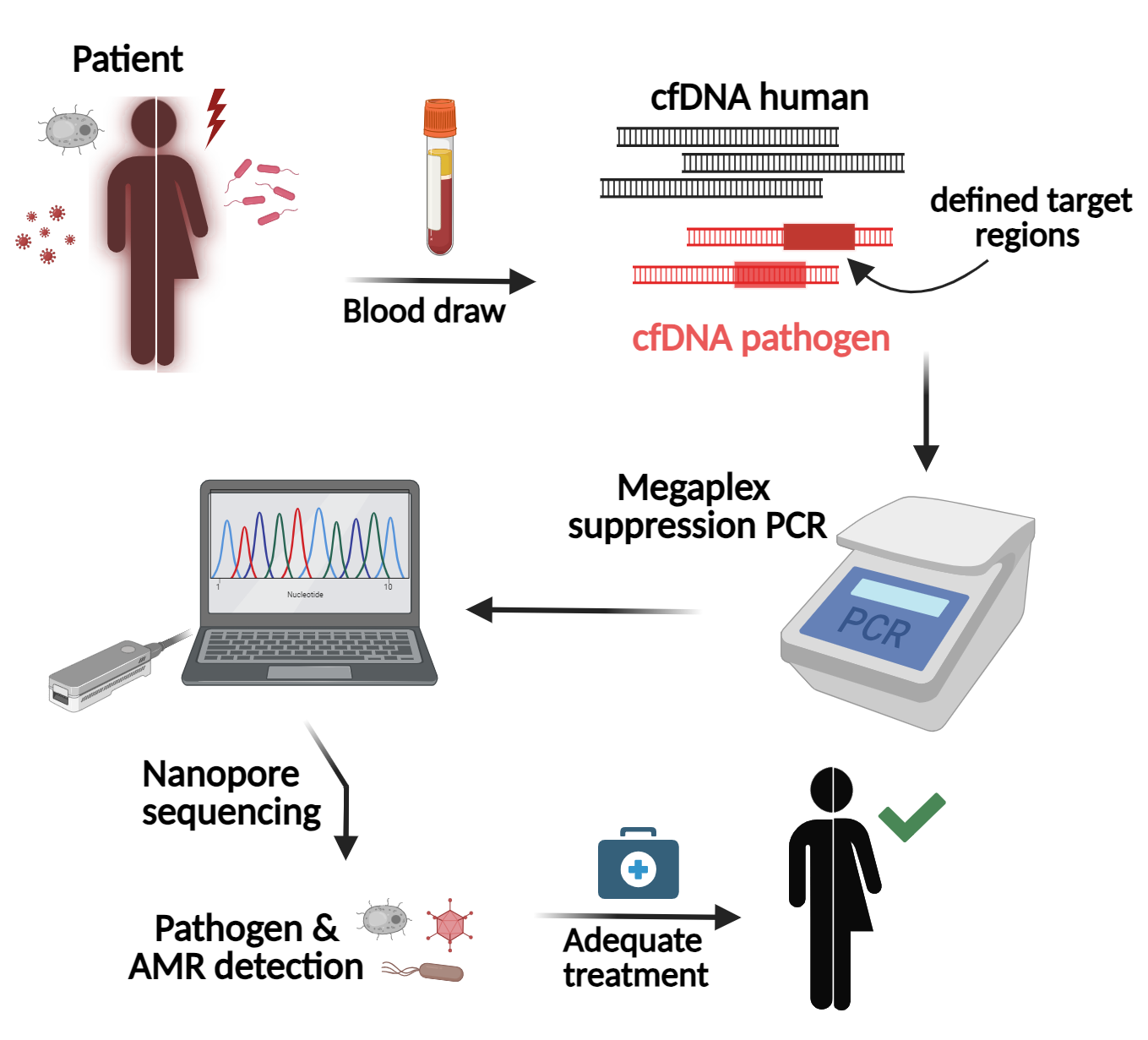The resistance of bacteria to antibiotics is mediated by corresponding resistance genes. The molecular biological method of next-generation sequencing (NGS), a high-throughput sequencing of nucleic acids, therefore opens up new possibilities for the detection of resistance as well as for the monitoring of resistance from a large number of biological samples.
Detection of microbial resistance genes using NGS
With our technologies optimized at Fraunhofer IGB, we select specific target regions, e.g. several microbial resistance genes, which are amplified in the first step and detected in the second step by means of next-generation sequencing.
Detection of resistance in patients and environmental samples
In this way, we can quickly and specifically analyze microorganisms and microbial resistance – in critically ill patients, but also in complex samples from the environment or wastewater treatment plants.
 Fraunhofer Institute for Interfacial Engineering and Biotechnology IGB
Fraunhofer Institute for Interfacial Engineering and Biotechnology IGB